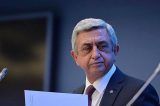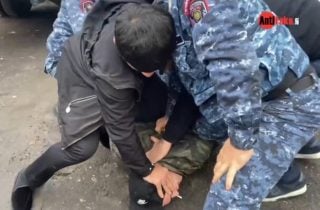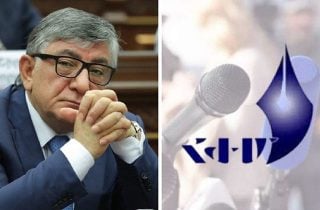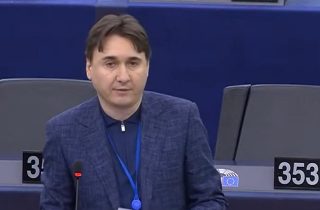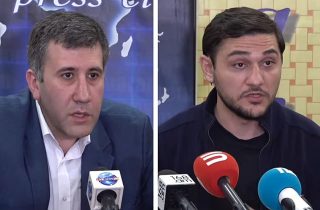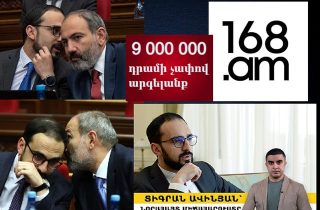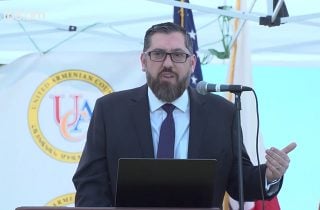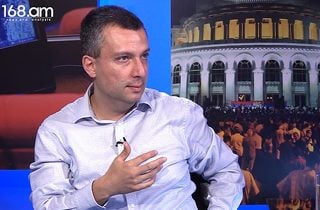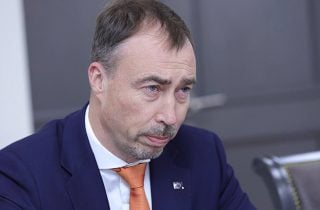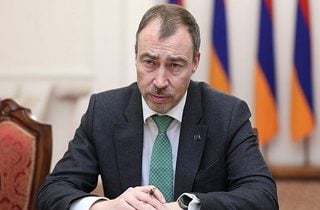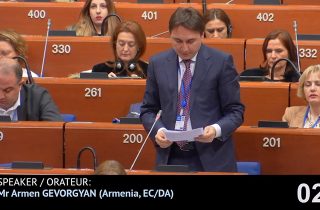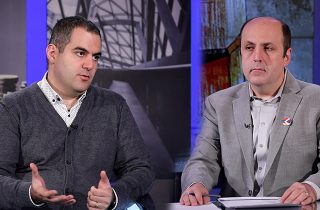Amanda Paul: “Armenian society seems to be much more passive than Ukrainian…”
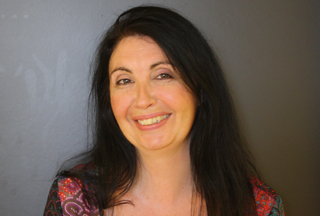
Interview with geopolitical and foreign policy analyst at «European Policy Centre» in Brussels: Amanda Paul
– Amanda, first of all, what do you think about the developments going on the Maidan and in the Ukraine generally? How can this end, will Yanukovych step down or he’ll manage to keep his power nevertheless?
– So far President Yanukovych has not been interested in serious compromise. He is only interested in staying in power. However, under pressure from the international community he came to the negotiating table with the opposition troika, but has so far used it to play for time and try to manipulate European public opinion He has failed to meet the full demands of the opposition forces and protestors, while also making fake or pseudo gestures such as the recent proposed Amnesty bill. The new test is whether the financial aid offer of the EU and US -which is attached to very specific requirements and criteria, including date for new early election, end to violence, new coalition government, political and economic reform – is accepted. While the opposition forces see to have accepted it, Yanukovych needs to consult with his “advisor” Russian President, Vladimir Putin. Ultimately Yanukovych is finished. It is just a question of when and how he will go. Ukrainians will not be satisfied until he is gone.
-We see statesments from the White House and from the european officials, and particularly we had EPP’s strong resolution on Ukraine on the 28 of january. How do you assess the engagement of the West in this issue?
– After a slow start the EU has increased its engagement, although unlike the US they have not been prepared to place targeted sanctions on some Ukrainian officials or freeze any assets of the many Ukrainian political elites and oligarchs that have money and other investments in many EU member states. This has been disappointing. Ultimately EU foreign policy is calculated by the interests of key capitals and these capitals prefer to maintain a wait and see what Yanukovych – and Putin – will do next.
– From the other hand, the Russian propaganda condemns these protests and considers it as very negative thing, because, as the most part of russian politicians, especially the officials and analysts say, “Europe and USA don’t care about the Ukraine and the Ukrainian people, they look at the Ukraine as a new market and a tool to weaken Russia, the West wants to separate two fraternal nations”. This is the main sense of what they say. Is there any part of truth here?
– Russian propaganda has not fooled anybody, even the Russians with many civil society and democratic movements in Russia openly s supporting EuroMaidan. Russia’s leadership views Ukraine as an indivisible part of Russia, hence they will fight to keep hold of Ukraine.
–And how will you comment in this context Putin’s statement, that Russia will not meddle in the domestic issues of the Ukraine?
I’m afraid I would have to disagree with President Putin. Russia has a two pronged approach to Ukraine, meddling both inside and externally and know what they are fighting for. It has been broadly acknowledged that. Russia has made no attempt to hide its involvement.
Particularly remarkable was the Russian decision to reintroduce tough customs procedures against Ukrainian goods, and freeze the promised $15 billion loan, immediately progress in negotiations between Yanukovych and the opposition troika was achieved. When Russian President, Vladimir talks about Russia as belonging to a distinct civilization, with an Eastern Slavic centre, he sees Ukraine at the heart of this; that Ukrainians and Russians are one people, hence this is struggle is not about integrating Ukraine to Russia it is about holding on to Ukriane.
– As you know, the Ukraine as well as Armenia is the member of the Eastern Partnership programme of the EU, and these two countries, inter alia, subjected to the pressure of Russia not to join to the Assosiation agreement with the EU, but to “stay” with him. And this is nearly what happened. So it’s clear, that these two countries are quite interrelated by their fate in some cases. So is that right to say that in this sense the Ukraine is some kind of gate for Armenia from the viewpoint of defending from the Russian influence? I mean, if a proeuropean party comes to the power in the Ukraine, can this affect on Armenia, on the membership of Armenia in the Customs Union, or Armenia is from another opera nevertheless?
– While the cases of Ukraine and Armenia have some similarities, in terms of them both suspending their Association Agreement /DCFTA with the EU, they are also different. The leverage that Russia has over Armenia is much broader and more significant. It takes in trade, economic investment, energy, migration and of course security.
Second point is that for much of Ukrainian society European integration is a civilization choice: A choice between values and freedoms –v- oppression, between democracy and dictatorship. Such a project or vision does not exist in Armenia.
Democracy in Ukraine is also much more developed than in Armenia. Ukraine has pluralistic politics, very active civil society and until recently a parliament that is not simply a rubber stamp.
Armenia also accepted to join the Customs Union and has made very speedy progress towards that end, despite the fact that it is a bad choice for the country. If Ukraine’s leadership were to bring Ukraine to the Customs Union, I believe the country would implode.
– However, do you see the possibility of this kind of developments, protests and so called “Maidanrevolution” in Armenia now?
-If you were to have this in Armenia I believe it would already have taken place at the time when President Sargsyan declared that Armenia would be joining the Customs Union. While there were some peaceful demonstrations they were quite small and the response of the Armenian authorities was to use excessive violence which was condemned. Unfortunately the decision of Sargsyan has left Armenia more dependent than even on Russia. Armenian society seems to be much more passive than Ukrainian in terms of fighting for a better and more democratic future where human rights, freedoms and the rule of law are respected.
Interviewed by Aram Sargsyan






